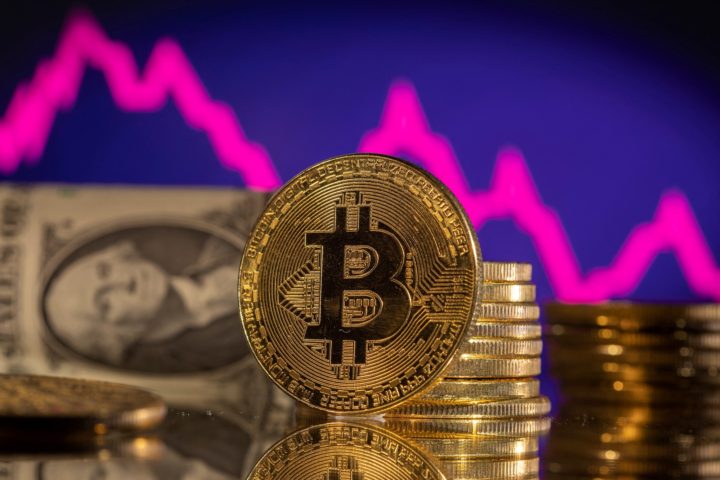Twitter is set to implement controversial changes that will affect unverified users on its platform.
In a tweet on July 21, Twitter Support announced that they will be introducing daily direct message (DM) limits for unverified accounts in an effort to reduce spam in DMs.
However, the specific daily limits have not been disclosed.
The announcement has garnered a negative reaction from users, both verified and unverified, who have expressed their opinions on the upcoming change.
One prominent comment by a user named Adam received over 1000 likes and criticized the move, stating that limiting basic features for users goes against the essence of Twitter.
Some users believe that this change is merely a tactic to push more users into subscribing to Twitter Blue, the platform’s subscription service, rather than genuinely combating spam.
Others have argued that the new restrictions could backfire, with verified accounts potentially using the opportunity to spam DMs since they won’t be subject to the same limitations.
This has led some to speculate that the change is more about Twitter’s financial interests, aiming to drive more users to pay for verification to cover their operational costs.
These changes come amidst a series of radical alterations to the platform since Elon Musk took ownership.
On July 1, Twitter implemented significant rate limits on the number of daily posts users could see, aiming to prevent data scraping and system manipulation.
This move led to the emergence of Meta’s Twitter alternative, Threads, which initially gained considerable traction but eventually followed suit by introducing its own rate limits on July 18.
In addition to these changes, Twitter had previously rolled out content monetization settings in April, allowing creators to monetize all types of posts on a global scale.
With Twitter constantly evolving under new ownership and facing various reactions to its alterations, it remains to be seen how these latest changes will impact user behavior and the overall dynamics of the platform.
Other Stories:
China’s Digital Yuan Soars: Business Travelers Can Now Pay for Flights with CBDC
Vermont Department of Financial Regulation Issues Stark Crypto Warning
Nigerian social payments app Bundle has recently announced the discontinuation of its crypto exchange services.
The decision, communicated through a statement on July 20 on the company’s blog, comes as part of a strategic restructuring effort to shift focus towards their payment solution called Cashlink.
According to the statement, the move was prompted by the observed growth of the Web3 and blockchain community.
Bundle’s shareholders deemed it necessary to pivot the business to meet the evolving needs of the ecosystem, concentrating on payment solutions that align better with the current trends.
With this change, users will no longer be able to register on Bundle’s platform, deposit assets into their Bundle wallet, or execute asset swaps within the wallet (except for Tether (USDT)).
Furthermore, users won’t be able to withdraw their assets with Cashlink unless they have Nigerian naira or other fiat currencies stored within their Bundle wallet.
The company has set a deadline for users to withdraw their assets from the app. Users are advised to complete this process on or before September 12, 2023.
To facilitate a smooth withdrawal, Bundle has outlined specific steps for users in Nigeria, Ghana, Kenya, and other francophone-speaking countries.
READ MORE: Vermont Department of Financial Regulation Issues Stark Crypto Warning
For users in these locations, the withdrawal process involves transferring their funds from Bundle to any preferred exchange.
Nigerian users, in particular, have the option to withdraw their naira using Cashlink or conduct bank transfers through P2P express. If their balance is less than $10, an easily accessible link is provided to initiate the withdrawal process.
The closure of Bundle’s crypto exchange arm follows the footsteps of another Nigerian crypto payment startup, LazerPay, which ceased its operations in April and made its intellectual property available for sale.
In conclusion, Bundle’s decision to shut down its crypto exchange services is driven by the desire to adapt to the rapidly evolving crypto and blockchain landscape.
By focusing on their payment solution, Cashlink, the company aims to cater better to the needs of the Web3 community.
Users are urged to withdraw their assets before the designated deadline, and specific guidelines have been provided for a seamless withdrawal process in various countries.
Other Stories:
2023 Ranking: 4 Best Crypto Projects To Invest In
China’s Digital Yuan Soars: Business Travelers Can Now Pay for Flights with CBDC
OpenAI recently made an exciting announcement on July 21, unveiling its plan to launch an Android version of the popular AI chatbot, ChatGPT. Following its successful release to iOS users in May, the company is expanding its reach to the Android platform.
The announcement was made via a tweet, where OpenAI also provided a preorder page in the Google Play Store.
This page allows interested users to register for the app’s installation once it becomes available for download.
OpenAI’s decision to launch on Android comes amidst the company’s continuous efforts to enhance the safety and transparency of its AI tools. Measures like content watermarking have been implemented to address concerns about misinformation generated by AI.
One of the key features of the Android app is its improved security measures when compared to the web version.
Additionally, it will offer users the convenience of conversation history synchronization across devices, a feature already available on the iOS version.
The move to introduce both Android and iOS apps puts OpenAI in direct competition with Microsoft’s Bing Chat, which also utilizes OpenAI’s GPT-4 technology.
These apps present an alternative way for users to test large language models (LLMs) without the need for a web browser.
Coinciding with OpenAI’s Android launch, Google has been rolling out its own chatbot called Bard in the European Union and Brazil.
Moreover, other competitors, such as Anthropic with its Claude 2 assistant, have been emerging. Claude 2 offers functionalities that surpass OpenAI’s paid version of ChatGPT.
Despite its prior popularity, ChatGPT witnessed a decline in traffic in June, marking the first such occurrence since its launch.
In a broader context, the crypto community has warmly embraced ChatGPT and other AI chatbots, with some enthusiasts even utilizing the technology to develop new tokens.
In conclusion, OpenAI’s decision to launch an Android version of ChatGPT marks a significant step in expanding the availability of this popular AI chatbot.
With its enhanced security measures and convenient features, it competes directly with other players in the market.
As the AI landscape continues to evolve, it will be interesting to see how ChatGPT and similar technologies shape the future of communication and information exchange.
Other Stories:
China’s Digital Yuan Soars: Business Travelers Can Now Pay for Flights with CBDC
2023 Ranking: 4 Best Crypto Projects To Invest In
Vermont Department of Financial Regulation Issues Stark Crypto Warning
A plea agreement has been reached between the husband and wife implicated in the laundering of billions of dollars worth of Bitcoin linked to the 2016 Bitfinex hack and U.S. authorities.
Ilya Lichtenstein and Heather Morgan are set to appear for an arraignment and hearing on August 3, following records filed with the U.S. District Court for the District of Columbia on July 21.
This agreement comes as they faced charges of money laundering conspiracy and conspiracy to defraud the U.S., and as part of the deal, they will be forfeiting digital assets associated with the case.
The criminal activities stem from the notorious hack of the cryptocurrency exchange Bitfinex in August 2016, during which approximately 119,754 Bitcoin (BTC), valued at $29,841 at that time, were stolen.
Subsequently, Lichtenstein and Morgan allegedly engaged in a series of intricate transactions across multiple accounts and platforms, laundering over 94,643 BTC of the stolen funds.
In February 2022, the authorities arrested the couple in New York and seized the BTC.
At the time of the hack, the confiscated Bitcoin was worth roughly $54 million, but by the time of the current publication, the value had surged to $3.6 billion.
The arrests and the subsequent seizure of laundered Bitcoin marked the most significant financial seizure ever carried out by the U.S. Department of Justice.
Though some small amounts of BTC connected to the hack have been occasionally traced and moved, only a limited portion has been returned to Bitfinex by the authorities to aid in the restoration of victims’ funds.
READ MORE: Vermont Department of Financial Regulation Issues Stark Crypto Warning
This plea agreement may bring some semblance of closure to the complex case, allowing the legal process to move forward while addressing the consequences of the vast cryptocurrency theft and its impact on the victims.
However, it also highlights the need for continued vigilance and security measures within the cryptocurrency space to safeguard against such high-profile hacks and money laundering schemes.
Other Stories:
2023 Ranking: 4 Best Crypto Projects To Invest In
China’s Digital Yuan Soars: Business Travelers Can Now Pay for Flights with CBDC






